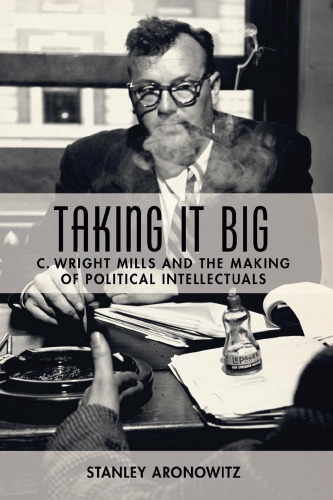

Most ebook files are in PDF format, so you can easily read them using various software such as Foxit Reader or directly on the Google Chrome browser.
Some ebook files are released by publishers in other formats such as .awz, .mobi, .epub, .fb2, etc. You may need to install specific software to read these formats on mobile/PC, such as Calibre.
Please read the tutorial at this link. https://ebooknice.com/page/post?id=faq
We offer FREE conversion to the popular formats you request; however, this may take some time. Therefore, right after payment, please email us, and we will try to provide the service as quickly as possible.
For some exceptional file formats or broken links (if any), please refrain from opening any disputes. Instead, email us first, and we will try to assist within a maximum of 6 hours.
EbookNice Team

Status:
Available4.7
14 reviewsC. Wright Mills (1916--1962) was a pathbreaking intellectual who transformed the independent American Left in the 1940s and 1950s. Often challenging the established ideologies and approaches of fellow leftist thinkers, Mills was central to creating and developing the idea of the "public intellectual" in postwar America and laid the political foundations for the rise of the New Left in the 1960s. Written by Stanley Aronowitz, a leading sociologist and critic of American culture and politics, Taking It Big reconstructs this icon's formation and the new dimension of American political life that followed his work.
Aronowitz revisits Mills's education and its role in shaping his outlook and intellectual restlessness. Mills defined himself as a maverick, and Aronowitz tests this claim (which has been challenged in recent years) against the work and thought of his contemporaries. Aronowitz describes Mills's growing circle of contacts among the New York Intellectuals and his efforts to reenergize the Left by encouraging a fundamentally new theoretical orientation centered on more ambitious critiques of U.S. society. Blurring the rigid boundaries among philosophy, history, and social theory and between traditional orthodoxies and the radical imagination, Mills became one of the most admired and controversial thinkers of his time and was instrumental in inspiring the student and antiwar movements of the 1960s. In this book, Aronowitz not only reclaims this critical thinker's reputation but also emphasizes his ongoing significance to debates on power in American democracy.